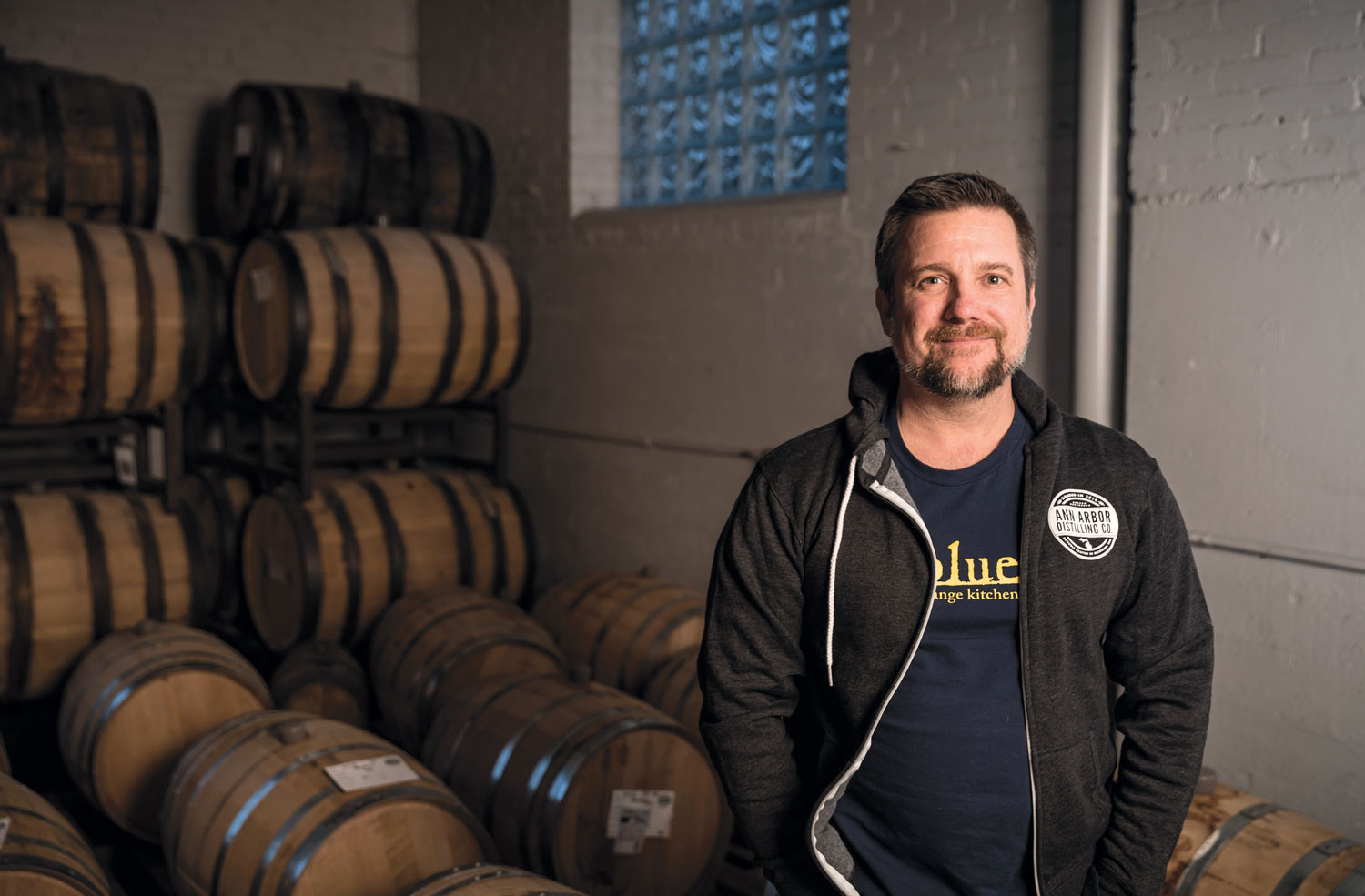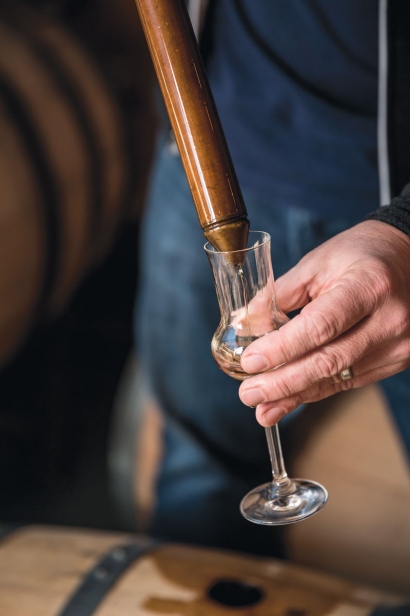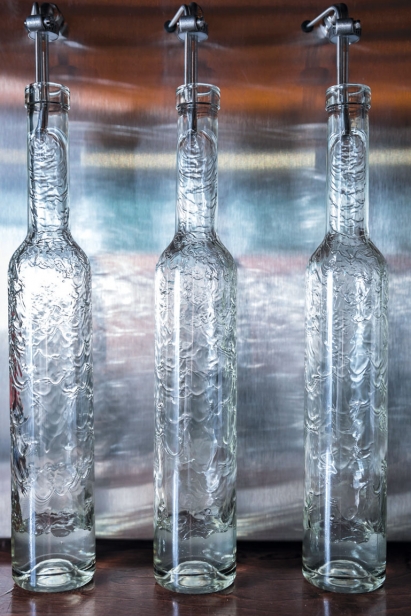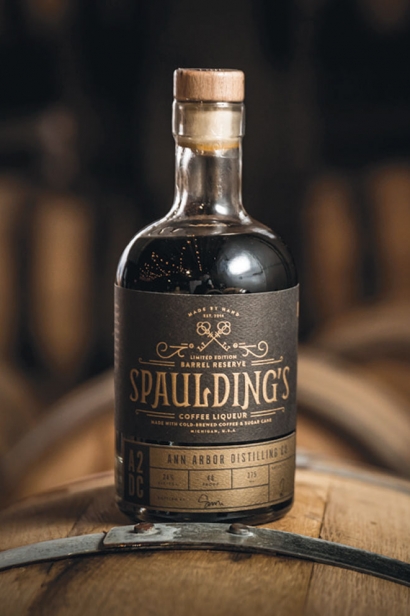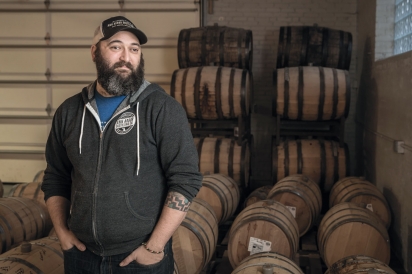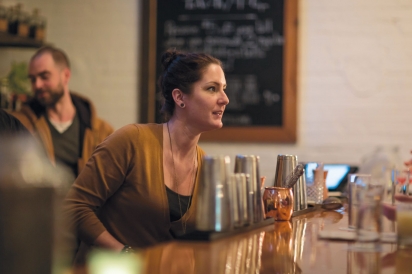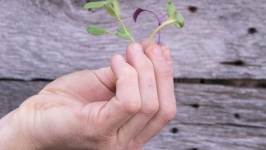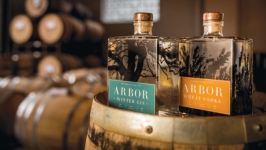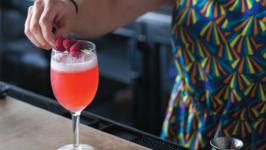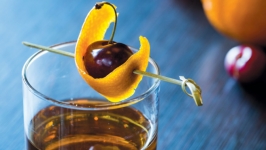Ann Arbor Distilling Co. Hoists a Glass to Michigan-Grown Grains
Sublime Spirits
It’s unusual to find a distillery located within the municipal limits of any city, town or village. Ann Arbor Distilling Co. is unusual in a variety of ways. It’s a business fermented by serendipity and distilled into a thriving enterprise.
“Having a bar 15 feet from my desk is pretty awesome,” jokes founding partner Rob Cleveland, whose sense of humor is as sharp as his business acumen. “When Ari asked me if I wanted to put a distillery in this building, I said, ‘Sure, why not?’” Ari Sussman, the other founder, brought the distilling credentials while Rob had the business savvy to create this provider of local spirits.
After moving to Ann Arbor to study political science at the University of Michigan, Cleveland met his future wife, Katie; Ari and his wife, Jaimie; and Cleveland’s other business partner, Brandon Johns, chef and co-owner of the Grange Kitchen & Bar. Chef Johns and Cleveland partner frequently for pop-up events. Cleveland also owns ICON Interactive, a digital marketing agency. He’s a busy guy.
Opening on December 5, 2015, the 82nd anniversary of the repeal of Prohibition, was an auspicious beginning. The former flour mill, built in 1924, is a linked series of three rooms. As you enter the building you’re in full view of the smaller of two stills used to fashion the superior liquors produced here. The tasting room is industrial chic with an earthy, funky vibe.
A massive custom-made still by the German maker CARL rises in the largest room used for pop-up dinners, parties and music events. That tall still is what facilitates being able to start with raw ingredients, and end with a pure finished product. Very few microdistilleries have the power to distill all the alcohol by themselves, says Cleveland. Many rely on added ethanol as do the enormous industrial distilleries. This scale of production helps ensure the quality and purity of the liquors made on Felch Street.
Distiller John Britton connected with Cleveland at a bottling party in 2016. Describing himself as “a classical guitarist with a serious coffee habit,” Britton studied distilling while earning a master’s degree at the San Francisco Conservatory of Music.
According to Britton, “Distilling is 95% cleaning. Glamorous it isn’t. I’m so lucky to be here. The distillation process is magical. It’s art in the bottle, and is only slightly less fleeting than the notes emanating from my guitar.”
Phil Attee, whose lofty title is brand ambassador, product development and special projects, has a degree in chemistry and is a master mixologist. “It’s a lot of hard work, but it’s so much fun to watch and listen to our customers enjoying our spirits,” Attee says. “Our goal is to produce unique local liquors that our customers recommend to others.”
The range of spirits offered is constantly evolving. What is also constant is the local sourcing of the raw materials used to produce their products. By using nearly 90% local ingredients, including harvesting pine needles from Britton’s evergreens, Ann Arbor Distillery is local through and through. Grain to glass isn’t just a cliché for these purveyors of potables.
The company’s vodkas exemplify their vision of using local raw materials to craft their spirits. Vodka, meaning “water of life,” originated in either Russia or Poland. Both countries claim the honor of one of the planet’s most popular liquors. Most vodkas are made from a variety of grains. Ranging from wheat, potatoes, rye, corn and barley, the grain used determines the aroma and flavor of the finished products.
Water Hill vodka is made from a blend of corn grown on the 200acre Ferris Organic Farm in Eaton Rapids, Marinich Organic Farms in Brockway and Wing Farms in Ann Arbor. Soft, pure and slightly sweet, this classic corn vodka is silky smooth.
Compared with the Water Hill vodka, Arbor Wheat vodka is a bit sharper, it’s crisper, leaner and refreshing. The wheat for this version is from Wing Farms, about five miles from the distillery.
Gin is the most popular offering in the repertoire. Water Hill gin is crafted from corn and wheat from the three farms mentioned above. Additional ingredients Croatian juniper, garam masala, cardamom, anise, fennel and cinnamon infuse this gin with exotic aromas of Asian spices.
Arbor Fall gin is weightier in style with aromas and flavors of nutmeg, mushrooms and autumn leaves. The Arbor Winter gin is zesty. Pine needles from John’s property are combined with other botanicals offering up a brisk and refreshing version of gin. “We want you to feel like you’re in the woods on a fall or winter day when you enjoy these gins,” says Attee.
Other offerings include Water Hill cherry Eau de Vie, Spaulding’s coffee liquor, bourbon, rye whiskey, apple brandy and barrel aged rum.
While many mass-produced spirits are suitable only for use in cocktails, Ann Arbor Distillery products are delectable enjoyed neat or on the rocks as well as enhancing your favorite cocktail.
“Pure and yet complex” describes spirits from the repurposed building steps from downtown Ann Arbor. As Cleveland says, “We’re improving every day. The convergence of people, place and resources has been an amazing journey and we’re just getting started.”
Find out more at Ann Arbor Distilling Company


